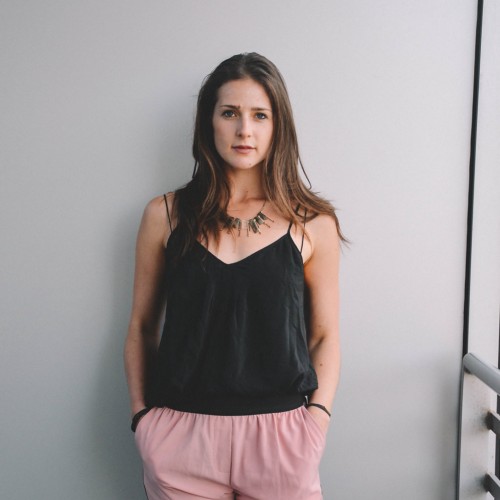
On a macro level, we have officially hit a Coronavirus pandemic, says the World Health Organization. On a microlevel, an hour doesn’t go by (maybe even less) without someone mentioning the latest coronavirus news and mandatory quarantine policies put into effect. I notice this juxtaposition where there is this global pandemic umbrellaing the world that connects us all, while at the same time I feel extremely isolated and alone. Living each day with a “sneaky” virus looming around the corner creates a lot of anxiety and unknowns for my personal health as well as feeling concerned about the wellbeing of my friends, family, co-workers, communities and humanity at large. Health is not the only issue at stake. Our economic livelihoods, feeling connected to communities and our freedom to be able to travel are all being stress tested.
I am someone who has managed anxiety my whole life and what spikes my anxiety is when I feel powerless and have a lack of control. That’s exactly what happens in times of uncertainty–nothing is guaranteed, decisions are made without my input and the future is unknown. Worst case scenarios of “Am I going to get the virus? Am I already carrying the virus? What if I get a baby or elderly person sick? Will I be quarantined when trying to get back to the States?” all swirl in my head. And yet, when I look at these thoughts objectively, I realize they are all based on stories my mind created. Stories that aren’t based on fact, but are ignited by the amygdala (the fear center/detecter of our minds) in order to keep me safe and attentive to the potential dangers that might be looming.
When I let my mind live in the stories, I am living in the future and watering the seeds of what ifs. I am disconnected from the present moment, which means I am missing life, letting time slip through my fingers, which sucks because I will never get this day or this moment back. So what do I do to center myself in times of uncertainty? I follow these 3 practices.
1. Practice being present by grounding into what I can control is essential for my mental health.
When life feels out of control, I put my focus on what I can control. I remind myself I get to strengthen my internal locus of control, which means I take personal responsibility for my actions and outcomes. I create a list of what I still have control of, which helps me ground into certain routines and practices.
I remind myself, I can control:
- My thoughts
- How I communicate
- How I spend my time
- How I move my body
- How I fuel/nourish my body
- Who I spend time with (virtually in this case)
- What I can surround myself with
- How much sleep I get
- What routines support me
Find your own center. Create your own list of what you can control at this moment. What routines or rituals would support you?
2. Take care of my nervous system.
The concept of my nervous system being “something” I can pay attention to was a new framework I learned about when I was diagnosed with cancer and going through chemotherapy. I started to notice my body was more than just my muscles, my bones and my organs. I realized and felt that my blood is full of trillions of cells. I learned I had a nervous system that helped my body breathe on its own, protect me by responding to danger and tell me when I could feel safe to relax. The ways in which I have learned how to take care of my nervous system is through meditating, and paying attention to what I eat and drink. For instance, I notice my nervous system gets hyper aroused when I have too much coffee or sugar–I feel way more anxious, irritable and jittery. Eating more plant-based foods and hydrating makes my inner system feel more equanimity–it’s like I am smiling internally. Vegetables are filled with so many nutrients that when I fill up on them, I feel like I am taking happy pills. For real! Looks like I am not the only person who thinks so. Check out some of the latest research about vegetables making you feel happier.
I also notice when I am not meditating regularly, my thoughts tend to be wrapped up in the future–trying to outsmart and plan. I can feel my nervous system on edge and always looking for the next step to take. It feels jumpy like a spooked frog leaping away. My meditation practice, even if it is for 2 minutes, helps me feel more present and kind. Learning what it feels like when my nervous system gets activated in fight/flight/freeze has been a powerful practice to help me feel in control of my health and wellbeing by doing whatever I can to engage my parasympathetic nervous system (relaxed state). Usually a simple breathing practice like breathing in for the count of 5 and out for the count of 5 and bringing my attention to my feet, helps relax my nervous system to feel calm, present and focused.
Make a list of the ways you can practice calming your nervous system?
3. Connect to Community.
Knowing I am not alone and that I have communities (near and far) to give and receive care helps me feel a sense of belonging and creates a strong backbone to support me standing tall. In these quarantined times, making sure I connect to family and friends via multiple forms of technology: text, email, FaceTime or family virtual dinner parties, is essential to feeling centered. I find that talking to my family and friends helps me mirror my own life to remind myself I am loved and not alone in my own thoughts and experiences. Connecting to community also helps normalize my experience by hearing how other people are doing as well. For some, leaning into their community during tough times can feel really vulnerable and scary. Issues of trust, security and guilt can arise. Know that is normal. And hopefully you can find at least one person to lean into during tough times. Know that you don’t have to go this road alone. If you need more psychological support at this time, make sure to reach out to a therapist for a virtual session or explore your options on TalkSpace.

